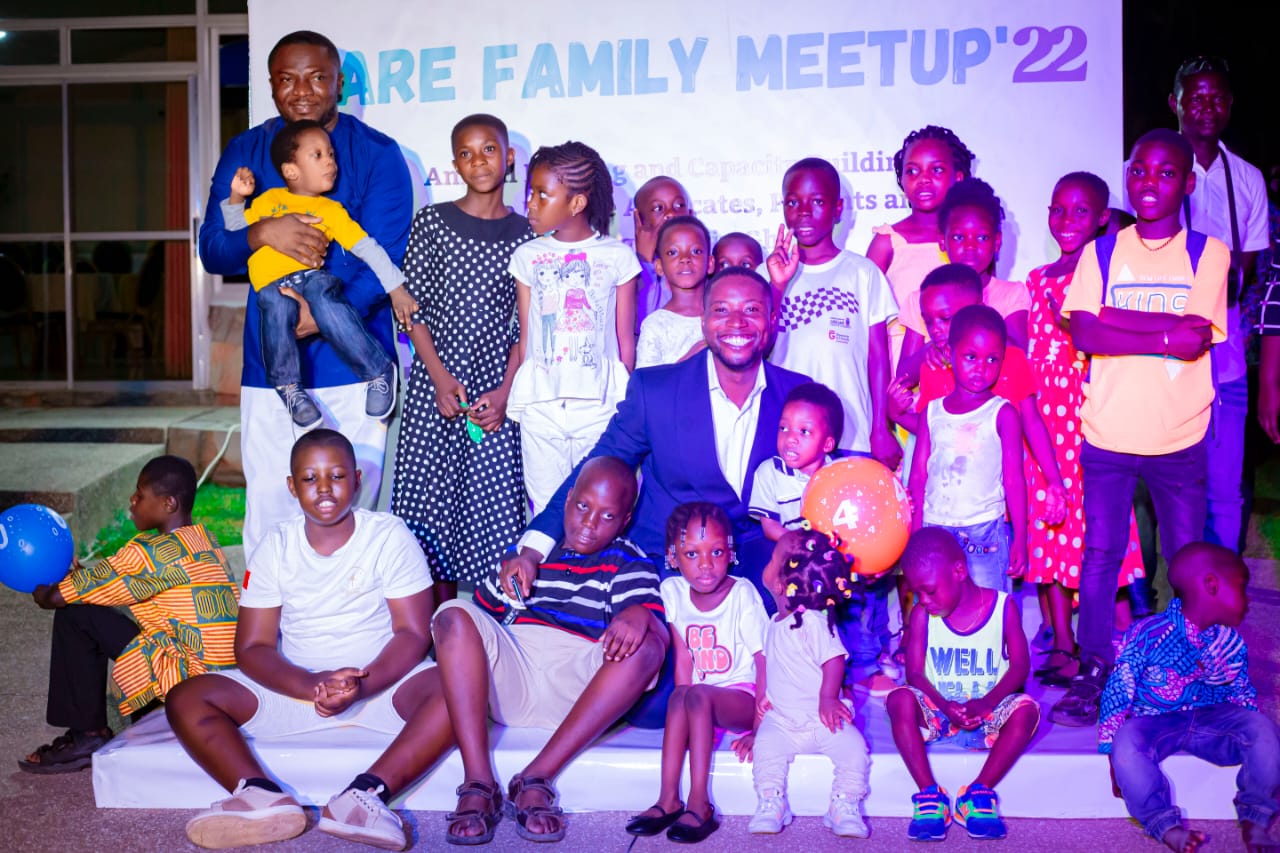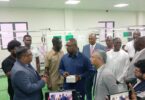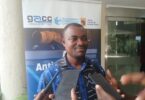
Mr. Samuel Agyei Wiafe, Executive Director of Rare Disease Ghana Initiative in a group picture with some children with rare disease
Story by: Ishmael Barfi
Government and key stakeholders in the health space has been called upon to support families and patients of rare diseases to ensure their wellbeing and development.
According to Mr. Samuel Agyei Wiafe, a clinical psychologist and the Executive Director of the Rare Disease Ghana Initiative (RDGI), rare diseases over the years have been neglected in the health system that, support for families and patients is marginalized.
It is in this regard, Rare Disease Ghana Initiative (RDGI) was established to identify and cushion families who live with patients with various forms of rare diseases.
Mr. Samuel Agyei Wiafe made these remarks in an interview with journalists at the maiden ‘Rare Family Meetup’ 2022 at the University of Ghana Guest House in Accra on 17th December, 2022.

Let collectively support families and patients of rare diseases”-Rare Disease Ghana
It is an annual meeting and capacity building for rare disease advocates, patients and caregivers in Ghana as well as to give families the opportunity to integrate, and share experiences of their rare disease journey.
Mr. Wiafe explained that, healthcare clinicians and everyone at RDGI is making efforts to support families and patients since its establishment five years ago in Ghana.
But was quick to add that, RDGI needs more support both financially and human resources in it’s quest to seek the wellbeing and development of patients and their families.
He further Reiterated that, “finding them is not enough but there is there is the need for tangible support which the family network as a community would focus on to get closer and provide assistance”.
To minimize the loneliness among patients and families, the formation of the Network Mr. Wiafe explained is to provide that sense of community to be able to provide emotional support as well as provide a big voice for the rare disease community.
This he said is to inform and educate the general public of the existence of rare disease hence understanding and appreciating patients and their families.

Members of Rare Disease Ghana Initiative, parents and children with rare disease in a group picture
And for this to materialize, he stressed on the need for government and other stakeholders in the health sector to prioritize the healthcare for rare disease patients as well as strengthen the social systems in the country.
“They need to be considered as we plan and prioritize our health care and social systems as well”, he emphasized.
In terms of data, Mr. Samuel Agyei Wiafe revealed that, currently close to 100 different rare disease has been recorded globally though there are over 7000 different rare diseases.
In Ghana, he indicated that, RDGI currently engages about 200 families whom they support in so many ways.
With regards to challenges, he pointed out, diagnosing of the rare disease by clinicians have been a headache but have been able to bridge that gap.
“We launched a diagnostic Access Program where our organization is sponsoring genetic tests for patients, clinicians suspects and other rare disease”, he noted.
Adding that, RDGI facilitates that process and many families do get the diagnosis, hence are able to know what is wrong with the child.

Rare Disease Ghana Initiative team in a group picture
Anothher challenge he noted was no treatment for diagnosed rare disease indicating “for many rare diseases, there are no treatments, approved treatments, many of them that are making headway, it’s in research around learning about the disease and trying to find how they can even find a treatment.
Adding, “in total, only 5% of rare diseases gets treatments, so 95% For those that have treatments, many of them cannot assess it in our part of the world. So the treatment is only available in the West”.
On the way forward, Mr. Samuel Agyei Wiafe emphasized on the need for proper definition of rare diseases in the country’s health policies and documents.
This he noted would help the fight of adding rare disease to the list of diseases the National Health Insurance Scheme covers.
“It’s not in our documents, the only document you will find rare disease mentioned is FDA guidelines.
Adding, “we do not have a definition that would trigger policies and interventions in that space. And so because of that it is difficult to even have that engagement or conversation regarding having rare diseases on insurance”.

Mr. Samuel Agyei Wiafe, Executive Director of Rare Diseases Ghana Initiative in a group picture with some children with rare disease
He further hinted that, they are open to engage with government on possible avenues with regards to funding the treatment of rare diseases in the country.
Adding her voice to Mr. Samuel Agyei Wife call for funding, Professor Nana-Akyea Yao, a consultant, pediatric cardiologist has reiterated the need for a special fund for rare disease treatment in the country.
To her, there is hope for children with rare disease and can also lead fulfilling lives, when given the needed support especially proper and adequate treatment.
For her, it is her hope is that “we learn about these diseases, we become more aware of these rare diseases, and we support and encourage the children and the families who have these entities.
Prof. Nana-Akyea Yao who also works at the National cardiothoracic center at the Korle-Bu Teaching hospital at the Department of Child Health was of the view that, it is important for Ghanaians to be aware, understand and appreciate that children with rare diseases are not curses but also human beings who live and fulfil their aspirations and dreams in life.
A rare disease is any disease that affects a small percentage of the population.
Most rare diseases are genetic and thus are present throughout the person’s entire life, even if symptoms do not immediately appear. Many rare diseases appear early in life.
Source: www.thenewindependentonline.com








